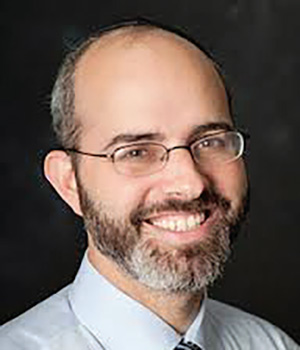
May these words of Torah serve as a merit le’iluy nishmat Menachem Mendel ben Harav Yoel David Balk, a”h, and Meira Chaya Nechama Bearacha, a”h, bat Reb David Mordechai Fishel Sheyichyeh.
This week we learned Chullin 87. These are some highlights.
Are new blessings needed after you daven during the meal?
Our Gemara teaches that even according to Rav Yehudah, who rules that one who is slaughtering both a chaya and a bird should cover the blood of one and then cover the blood of the other, would agree that a single blessing would work for both acts of slaughter. The Gemara finds this troubling. In regard to a meal, we have learned that if a group asks for a cup of wine upon which they intend to recite Birkat Hamazon, they would not then be allowed to continue eating without reciting new blessings. Once they said that they intended to bentch, the meal was interrupted and any further eating would require new blessings. The Gemara therefore finds it curious that according to Rav Yehuda, one would cover the blood of one animal and then slaughter the next without reciting a second blessing. The act of covering the blood should be considered a hefsek and a new blessing should be needed for the second act of slaughter.
The Gemara answers that covering blood of a slaughtered animal is different from bentching. While bentching, one does not have the ability to also eat; therefore an intent to bentch is considered a hefsek of the meal. A person can cover the blood with one arm and with the other arm slaughter an animal. For this reason the act of covering the blood of the first animal is not considered a hefsek from the initial blessing on slaughtering and the person can slaughter the second creature without reciting a new blessing.
A man was eating a late lunch, and as he looked out the window and saw the sun setting he realized he had not yet prayed the afternoon prayer. He rose from the table and davened Mincha. Does he now need to recite blessings before eating more food? Is a Mincha prayer considered a hefsek to mandate new blessings on any new food he eats? Tosafot (s.v. Mishta) quotes the view of Harav Rav Yom Tov who argues that if a person were to pray in the middle of his meal, he would then have to recite blessings on all the food he would subsequently eat—for the prayer would be considered a hefsek to the original blessing on the meal. While you pray you cannot also eat. Our Gemara teaches that covering blood is not a hefsek to the blessing on the shechita because you can slaughter while covering the blood, but since you cannot eat while you bentch, a desire to bentch is a hefsek. Harav Rav Yom Tov derives from this that prayer is a hefsek, and one who had to pray during his meal has disconnected the original blessing and would now need to recite a new blessing before each food type that he would continue to eat.
Tosafot disagree with Harav Rav Yom Tov. Tosafot argue that bentching and kisuy hadam differ from prayer during a meal. Bentching is usually the close of a meal, and covering the blood is the completion of the shechita. Activities that represent the end of an activity serve as a hefsek and thereby mandate new blessings after them. Praying Mincha during a meal is not an indicator of a meal ending. Imagine if a person is sitting to eat a meal and there is a sudden streak of lightning or bolt of thunder. The man would recite a blessing on the thunder or lightning. Would we say that he has to recite blessings now on the rest of the food he eats because while blessing the lightning he was not able to also eat? We would certainly understand that the blessing on the lightning was not a break in the meal and he would not need to recite new blessings. The same is true with praying Mincha during a meal. The prayer is not a hefsek, and once you were to return to the meal you could continue eating without reciting any new blessings. Shulchan Aruch (Orach Chaim 178:6) rules like Tosafot and does not require new blessings when a person had to interrupt his meal to pray.
Da’at Torah (Orach Chaim Siman 178 se’if 7 s.v. Venishalti) was asked about a person who had to eat on Yom Kippur for health reasons. One who needs to eat on Yom Kippur is to eat tiny amounts with intervals in between the ingestions. Thus he eats less than a date-amount of food, then waits nine minutes and eats another chunk of food that is less than a date-amount. Since he may not eat during the nine-minute interval, the question was raised about blessings. Perhaps the intervals would be considered a hefsek; is a new blessing in order for each ingestion? Da’at Torah rules that there is no need for a new blessing on each ingestion. We rule like Tosafot; only an action that completes a process would serve as a hefsek and mandate new blessings. Furthermore, even Harav Rav Yom Tov would agree in this case that there is no need for a new blessing. Harav Rav Yom Tov dealt with an act. A person got up to pray. Since while praying he could not also eat it was a hefsek. The sick person on Yom Kippur is not performing an act to disconnect from the original blessing. He merely needs to wait and not eat for nine minutes. Since he is not actively doing something that would serve as a hefsek, his inability to eat is not considered a hefsek and his original blessing is effective for all the subsequent acts of eating. (Mesivta)
By Rabbi Zev Reichman
Rabbi Zev Reichman teaches Daf Yomi in his shul, East Hill Synagogue.













